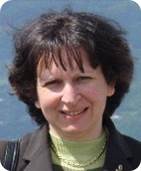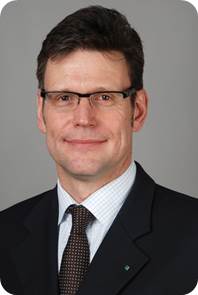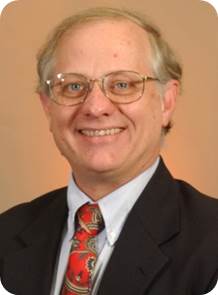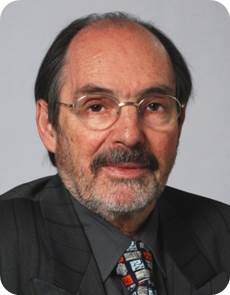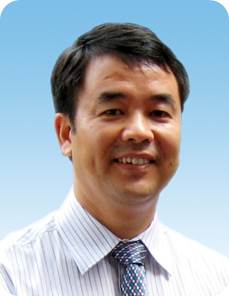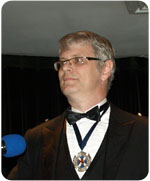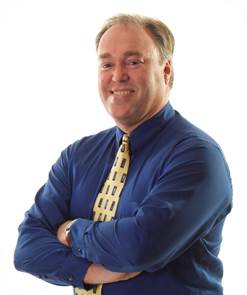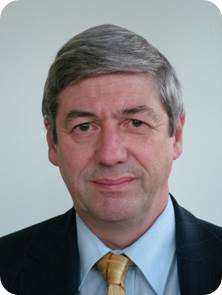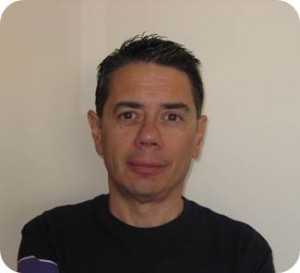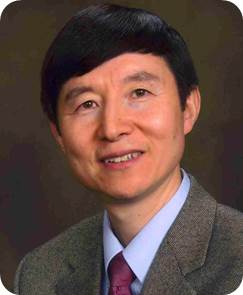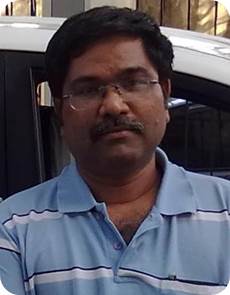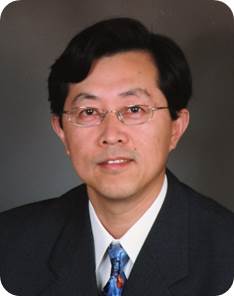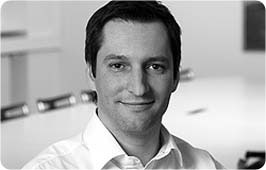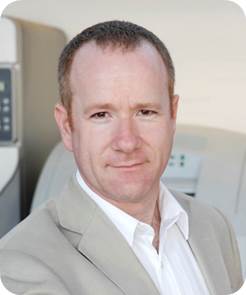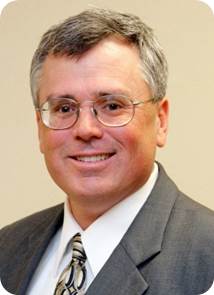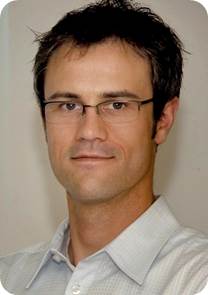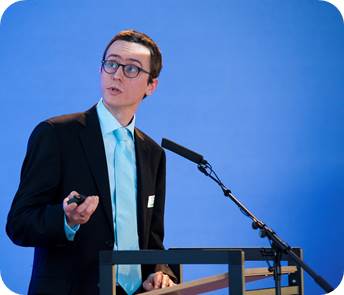Invited Speakers
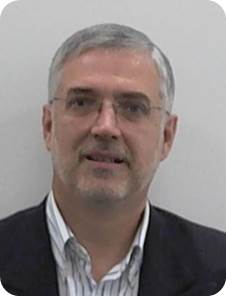
Alain Bernard, École Centrale de Nantes, France.
Evolutions of additive manufacturing: from rapid prototyping to 3D printing
Alain Bernard, 54, graduated in 82, PhD in 89, was associate-Professor, from 90 to 96 in Centrale Paris. From Sept. 96 to Oct. 01, he was Professor in CRAN, Nancy I, in the “Integrated Design and Manufacturing” team. Since 0ct. 01, he has been Professor at Centrale Nantes and Dean for Research from 07 to 12. He is researcher in IRCCyN laboratory (UMR CNRS 6597) in the “Systems Engineering –Products-Performances-Perceptions” team. His research topics are KM, PLM, information system modelling, interoperability, human safety modelling and evaluation, enterprise modelling, systems performance evaluation, virtual engineering, additive manufacturing, reverse engineering. He supervised 23 PhD students, recently on extended enterprise modelling, simulation and performance evaluation. He published more than 250 papers in refereed international journals, books and conferences. He is vice-chairman of WG5.1 of IFIP (Global Product Development for the whole product lifecycle) and chairman of CIRP STC Design.
SPACE
Anath Fischer, Technion, Haifa, Israel
3D Multi-scale Geometric Modeling and FE Analysis of porous structures for design of scaffold porous structures
Prof. Anath Fischer has been a faculty in the Department of Mechanical Engineering at the Technion–Israel Institute of Technology (IIT) since 1994. She is the Vice dean for Graduate Studies of Mechanical Engineering. She has supervised 30 graduate students and is currently leading a group of researchers and graduate students. Her major research interests are computational metrology and virtual and rapid prototyping for engineering and medical applications. During the last ten years, she and her team have developed methods for: a) Geometric processing and surface/volumetric reconstruction of scanned data for macro- micro- structures; and b) Geometric modeling for mechanical analysis of multi-scale models.
Prof. Fischer has published over 145 papers in academic journals, including IEEE CAD J., ASME Trans. JCISE, CIRP, IJNME, VPP and at international conferences. She is on the editorial boards of ASME Trans. JCISE and Virtual and Physical Prototyping journals. She has been program chair, conference co-chair and IPC member in international including the several bi-international conferences. Prof. Fischer has received the Gutwirth and Taub awards for excellence in research. She has also been involved in international scientific and industrial projects across Europe including EU projects. She was also involved in medical projects with hospitals that relates to developing of diagnostic system for large-scaled micro-structures.
SPACE
Axel Demmer, Fraunhofer Additive Manufacturing Alliance, Germany
Generate the Future – Concepts and Solutions for Additive Manufacturing of Tomorrow
Axel Demmer studied mechanical engineering at RWTH Aachen University, majoring in automotive engineering. From 1995 to 1999 he worked as a research assistant in the Process Technology Department at Fraunhofer IPT. His research areas were laser-assisted spinning, laser applications with high power diode lasers and the development of a testing method to investigate temperature shock behaviour of metal materials. From 1998 to 2000 he was head of the Laser Technology group.
From 2000 to 2008 Axel Demmer was head of the Process Technology department at Fraunhofer IPT. In this connection he was responsible for the technical and scientific performing of national and international research projects. Furthermore he takes the responsibility for the research fields in human resources, content and budget issues as well as the set-up and fulfilment of strategic objectives.
Since 2008 Axel Demmer is responsible for the development and planning of Fraunhofer IPT’s common research activities and strategy planning. In this context he takes also responsibility for an overall human resource management.
Furthermore Axel Demmer is head of the office of the Fraunhofer Group for production, a cooperative venture by seven Fraunhofer Institutes with the aim of collaborating on production-oriented research and development. In this function he coordinates a range of services that covers the entire product life cycle or value chain by means of the latest findings in industrial engineering and information science.
Since 2012 Mr. Demmer is spokesman of the Fraunhofer Additive Manufacturing Alliance. The Alliance encompasses eleven Fraunhofer institutes which are based throughout Germany to form the entire additive manufacturing process chain, comprising the development, application and implementation of additive manufacturing methods and processes.
SPACE
Dave Bourell, University of Texas at Austin, USA.
Materials Issues in Additive Manufacturing
Materials have always been critical to additive manufacturing (AM) technologies. Originally, materials selection for AM concentrated on the manufacturing properties and material availability in the requisite product form. As AM advanced, the focus has shifted towards part service properties. This was accelerated in the last ten years with the transition from prototyping to functional part applications. A hierarchy of materials for AM is proposed which includes single-phase materials, alloys and composites. Post-processing routes impact service properties as well. Factors giving rise to mechanical properties of AM parts will be reviewed including specific research currently underway in the Laboratory for Freeform Fabrication at The University of Texas at Austin.
SPACE
Farzad Khosrowshahi, Leeds Metropolitan University, UK.
Building Information Modelling and collaborative working: The theory of everything in Construction
Farzad Khosrowshahi is a Professor of Construction IT and has expertise in financial forecasting, modelling and management as well as knowledge of fields associated with Construction and Engineering. He is well published and has a broad track record in collaborative and multi-disciplinary research at both national and international levels. As the director of Construct IT he has been instrumental in helping the industry to shape its strategic agenda towards innovative exploitation of ICT. He is an ambassador and Fellow member of the Chartered Institute of Building – CIOB. His national and international standing is reinforced by his membership of several scientific and industry-based committees, as well as his role as the assessor/evaluator of many international funding bodies. These include ECCREDI (European Council for Construction Research, Development & Innovation); AEEBC (Association d’Experts Européens du Bâtiment et de la Construction) ; CIOB (Chartered Institute of Building) Innovation & Research; CIOB Discipline Network; Innovation Focus group; CIOB Integrated Design and Construction Panel; CIOB Faculty of Architecture and Surveying Panel; CIOB Computing and IT committee; CIC (Construction Industry Council) Innovation & Research; buildingSMART – UK and CITE (Construction Industry Treading Electronically); and British Standards BS555. Farzad Has been involved in several research projects funded by UK, EU or those form outside EU. These include leadership of two TEMPUS projects. Also, his research standing is underpinned by involvement with many research-related entities. These include serving as the chair of ARCOM (Association of Researchers in Construction management). He was the founding member of the Information Visualisation Society (IVS), its chair and vice-chair. With financial help from DTI, he founded UCI (Uniting Construction Information), and served as its rotating chair for a year.
SPACE
Gideon N. Levy, Centre for Rapid and Sustainable Product Development, Portugal.
Additive Manufacturing Technologies, known also as 3D Printing, represent the next major movement in Cyber Manufacturing
Prof D.Sc. M.Sc. Gideon N. Levy Studied at IIT (Technion Israel Institute of Technology Haifa). B.Sc. (1966): Mechanical Engineering (cum laude); M.Sc. (1968): Control Engineering (with distinction); D.Sc. (1972): Electro Physical & Chemical Manufacturing Processes. Prof Dr Levy’s career is in advance R&D in the Mechanical / Electronic / Manufacturing technologies with leading Swiss OEM. Here he served in executive positions and academia institutions. He specialized in Manufacturing technologies, primarily Electro Physical & Chemical Processes (e.g. EDM ECM, AM, Laser etc.). Furthermore, in Technology management, Market – Product strategies, key customers, industrial, scientific, technical and practical aspects of product design and manufacture, products market launch and technology transfer. His academic activities disembogued in the appointment as Professor at the University of Applied Sciences St. Gallen. He served as builder and head of the irpd Institute for Rapid Product Development. The institute merged in 2008 with Inspire AG a Technology Transfer unit at the ETH Zurich. Prof. Levy is currently serving as visiting professor at several universities, industrial consultant (TTA Technology Turn Around) , as well as Advisory Board since 2005 at the Centre for Rapid and Sustainable Product Development (CDRsp), Polytechnic Institute of Leiria (IPL) Portugal.
Prof Dr. Levy holds 30 Patents; he published around 170 scientific and technical publications, over the half are dealing AM (Additive Manufacturing) technologies. His major contribution to the field was his development with a Swiss industrial partner of a successful line of polymers for SLS (DuraForm™, DuraForm™ Flex, DuraForm™ HST, CastForm™ and other). Furthermore, research on systematic process enhancements in SLS SLM and comprehensive TQM quality management methodologies was done.
Dr. Levy is a long time Fellow of the prestigious Academy for Production Engineering (CIRP) and a very early advocator promoting Rapid prototyping to become an important manufacturing method (AM or 3DP today) . has received numerous awards for his contribution to the AM field (2007 VR@P career Award and Honorary Chairman, 2008 The AMUG (former 3DSUG) “Dinosaur “Award, 2008 TCT 2008 among the Top 25 Most Influential People in RPD&M, 2008 first ever SME RTAM’s 2008 Industry Achievement Award, 2010 FAME award University of Texas).
SPACE
Heng Li, Hong Kong Polytechnic University, China.
Virtual Prototyping Research and applications in Hong Kong Construction Industry
Heng Li is a Chair Professor of Construction Informatics at The Hong Kong Polytechnic University. Heng started his academic career from Tongji University since 1987. Heng then researched and lectured at the University of Sydney, James Cook University and Monash University before joining Hong Kong Polytechnic University. During this period, Heng have also worked with engineering design and construction firms and provided consultancy services to both private and government organizations in Australia, Hong Kong and China. Heng has conducted many funded research projects related to the innovative application and transfer of construction information technologies, and he has published 2 books, more than 200 journal papers in major journals of his field and numerous conferences papers in proceedings.
SPACE
Ian Gibson, National University of Singapore, Singapore and Centre for Rapid and Sustainable Product Development, Portugal.
Enthusing students: The role of 3D Printing within a Design-Centric Programme
Ian Gibson has been working with (what is now commonly referred to as) 3D Printing for over 20 years. A well-known figure in the field, he helped establish the Rapid Prototyping Journal, GARPA, the best-selling book “Additive Manufacturing: from Rapid Prototyping to Direct Digital Manufacturing”, and numerous other initiatives. Recently, he has been heavily involved in establishing a new Design-Centric Programme at the National University of Singapore and is about to undertake a similar task at Deakin University in Australia in 2014.
SPACE
Ian Harris, Additive Manufacturing Consortium, USA.
New Developments for Additive Manufacturing of Metals
Ian Harris is the Founding Director of the Additive Manufacturing Consortium (AMC), a group formed in the USA around the needs of the aerospace market for increasing the manufacturing readiness of powder bed and other additive manufacturing technologies. Today, this 32-member group continues to develop projects funded by both government and industry members. He is an active member of ASTM F42, working primarily on directed energy deposition processes. Dr. Harris has more than 30 years of comprehensive experience in arc welding including applied research, consulting, and in-plant trouble shooting. His PhD research was in hybrid laser arc welding. With degrees in metallurgy and welding engineering, his primary area of expertise is gas-shielded arc welding processes, and his research has resulted in more than 200 technical reports, papers, book chapters, and he holds two joint patents with industrial companies. As a Technology Leader, Ian is responsible for EWI’s arc welding business development, technology innovation and technology growth.
SPACE
Jean-Pierre Kruth, Catholic University of Leuven, Belgium.
Combining additive and subtractive laser manufacturing: selective laser melting, ablation and remelting
Jean-Pierre Kruth is full professor at the Catholic University of Leuven (KU Leuven, Belgium), where he is responsible for Production Engineering research and education at the M.E. Department (Recipient of the 1998 CASA/SME University LEAD Award). His activities involves: CAD/CAPP/CAM, production processes, metal cutting, sheet metal manufacturing, non-traditional machining (EDM and laser machining), rapid prototyping and manufacturing, reverse engineering, dimensional metrology and quality control.
After obtaining his PhD in 1979, he worked at the Institut Technologi Bandung (ITB, Indonesia, 1979-1982). He was research engineer at the Scientific and Technical Center of the Belgian Metalworking Industry (CRIF/WTCM/Sirris) and half-time consulting engineer at the national ‘CAD/CAM Stand-By’ service for industry (IWONL), till being nominate full-time professor at KU Leuven in 1987.
He is, among others, Fellow of CIRP (International Academy for Production Engineering), Fellow of SME (Society of Manufacturing Engineers, Dearborn, USA), Honorary member Romanian Society of Mech. Eng., Member IMEKO/BEMEKO (International/Belgian Measuring Confederation).
He is founding board member of several companies involved in RP and AM, including Materialise (1990-1997), Metris (1995-2009, now Nikon Metrology) and LayerWise (2008-today). He has been awarded among others the F.W. Taylor Medal (CIRP) and the Knight of the Laser Technology award (Erlangen, Germany), the Industrial and Academic Career Award in Virtual and Rapid Prototyping (Leiria, Portugal), the International Freeform and Additive Manufacturing Excellence (FAME) Award (Austin, USA).
SPACE
Juan Carlos Torres, University of Granada, Spain.
Digitizing and prototyping for Cultural Heritage
Juan Carlos Torres is a full professor of Computer Graphics at the University of Granada (Spain). He received an MA in Physic in 1982 and the Ph.D. in 1992. He is responsible of the Computer Graphics Group in the Software Engineering Department and director of the Virtual Reality Laboratory of the University of Granada. His current research interests include volume and solid modelling, virtual reality, octree representation, 3D digitizing, haptic interaction, cultural heritage applications, GIS and geometric algorithms. He has been active in the Computer Graphics area for more than twenty years.
He has been responsible of the design of the Virtual Reality Laboratory at the University of Granada, as is author of more than one hundred scientific papers. He is project leader of the “Cultural Heritage Information System” project developed with the Alhambra monument that has developed a 3D information system for cultural heritage. He has participated in several digitizing projects of cultural heritage sites including the Alhambra Palace and the roman city of Italica. He has received grant awards totalling over €1 Million as Principal Investigator.
He has served as chairman of the Eurographic’s Spanish Chapter from 1995 to 2002. Torres has been the Chairman of the EG Spanish Conference in 1993, the EG DSVIS ’97 workshop, short paper co-chair at EG’2000 and co-chair of EUROGRAPHICS 2003 conference, held at Granada.
SPACE
Jun Ni, S.M. Wu Manufacturing Research Center, University of Michigan, USA
Sustainable Global Manufacturing
Dr. Jun Ni is the Shien-Ming (Sam) Wu Collegiate Professor of Manufacturing Science and Professor of Mechanical Engineering at the University of Michigan, USA. He serves as the founding Dean of the University of Michigan – Shanghai Jiao Tong University Joint Institute located in Shanghai, China since 2006. He is also the director of the S. M. Wu Manufacturing Research Center and the co-director of a National Science Foundation sponsored Industry/University Cooperative Research Center for Intelligent Maintenance Systems at the University of Michigan.
Professor Ni’s expertise is in advanced manufacturing research, including quality control, precision manufacturing, machining processes and intelligent maintenance systems. Professor Ni has published over 400 technical papers, and supervised 83 PhD graduates and 58 MS gradutes.
Selected honors and awards that Professor Ni received are 2013 Gold Medal from Society of Manufacturing Engineers, 2013 S. M. Wu Research Implementation Award from North American Manufacturing Research Institute, 2013 International Cooperation Award from Shanghai Government, 2010 Magnolia Gold Medal from Shanghai Government, 2009 Ennor Manufacturing Technology Award from American Society of Mechanical Engineering (ASME), 1994 Presidential Faculty Fellows Award, and 1991 Outstanding Manufacturing Engineers Award from SME. He is an elected Fellow of International Society of Engineering Asset Management (ISEAM), International Society for Nanomanufacturing (ISNM), American Society of Mechanical Engineers (ASME), and Society of Manufacturing Engineers (SME).
Professor Ni has been invited to serve as a guest/advisory professor at many institutions, including Shanghai Jiao Tong University, Tsinghua University, Xi’an Jiao Tong University, Huazhong University of Science and Technology and 10 other institutions. He also served as a member in the Expert Advisory Board of the Ministry of Science and Technology of PRC to consult for the mid to long-term strategic planning of the advanced manufacturing. He also served as a consultant for Korea Institution of Materials and Machinery, and South African’s Department of Science and Technology’s Advanced Production Roadmap. He has served as a member of the External Advisory Board at Taiwan’s Industrial Technology Research Institute and as a member of the International Advisory Board of the State of Michigan.
He served as the Chairman of ASME’s Manufacturing Engineering Division during 2003/2004. He has served as a Vice Chairman of Global Agenda Council on Advanced Manufacturing at the World Economic Forum since 2010 and is very active in various national and international studies of policy recommendations for advancing manufacturing competitiveness globally.
SPACE
K. P. Karunakaran, Indian Institute of Technology Bombay, India.
Prototype Casting
Kurana P. Karunakaran is presently a professor in the Department of Mechanical Engineering of the Indian Institute of Technology Bombay. He has about 29 years of professional experience. He worked as a CNC programmer in Hindustan Aeronautics Limited for about 9 years since his graduation in 1984. He has been teaching and researching at IIT Bombay in the areas CNC technology, Rapid Manufacturing (RM) and Computer Graphics for the last 19 years. He was a consultant to Mercedes-Benz Technology Centre in Summer 2000. He has been associated with Fraunhofer institutes in Stuttgart and Darmstadt since 1998 through Summer visits as a Humboldt Fellow. He was a Visiting Professor in the University of Metz in Winter 2005 and in Ecole Centrale de Nantes since 2006. He launched OptiLOM, a pre-processor for LOM-RP in collaboration with DaimlerChrysler and Materialise during EuroMold 2002. He is presently developing two RM processes, Hybrid Layered Manufacturing (HLM) and Segmented Object Manufacturing (SOM). 5-axis HLM has been developed for arc weld deposition which can produce complex geometries such as an impeller. The same will be extended for laser deposition using a differentially fed multi-wire/strip stocks to achieve gradient matrix through an Indo-UK project with the partnership of Cranfield and Nottingham Universities that starts on January 1, 2014. SOM is a RP machine to produce EPS objects in thick segments using a combination of hot wire slicing, machining and gluing.
SPACE
Lihui Wang, KTH Royal Institute of Technology, Sweden.
Realising Sustainability through Cloud Manufacturing
Lihui Wang is a Professor and Chair of Sustainable Manufacturing at KTH Royal Institute of Technology, Sweden. His research interests are focused on cloud manufacturing, web-based real-time monitoring and remote control, human-robot collaborations, and adaptive process planning. The ultimate goal of his research is to achieve sustainability in human society with better living environment. Professor Wang is actively engaged in various professional activities. He is the Editor-in-Chief of International Journal of Manufacturing Research, Editor of Robotics and Computer-Integrated Manufacturing, Editor (Europe) of Journal of Intelligent Manufacturing, and Associate Editor of Journal of Manufacturing Systems. He is a Fellow of SME (Society of Manufacturing Engineers), a Board Director of North American Manufacturing Research Institution, and a registered Professional Engineer in Canada. He has published seven books and authored in excess of 250 scientific articles in books, archival journals and refereed conference proceedings. His accomplishment has won him 12 international and institutional awards.
SPACE
Olivier Jay, Danish Technological Institute, Denmark
The industrialization of Additive Manufacturing
Product development, industry consultant, project leader and speaker, Olivier Jay is the head of the section of Additive Layer Manufacturing activities in the Danish Technological Institute. For the past 13 years, Olivier has focused on the product design for rapid manufacturing and prototyping. President of the Danish RPT association, member of the GARPA community, Olivier has focused on the research and to educate industry. He has been given conferences in most of Europe, and he is making courses on RM to the Danish industry and Engineering school. He is Project leader of the Compolight project under the FP7 MNP programs and from 2 Danish Projects on RM. Member of the management board of the European RM working group under the MANUFUTURE platform. He is also project leader for the Danish F-Mat project about functional materials. Developing high end product for the industry, he has been working in the area from design for manufacturing to virtual reality or reverse engineering.
SPACE
Richard Bibb, Loughborough Design School, UK.
The design implications of additively manufactured medical products
Richard Bibb graduated from Brunel University with a BSc in Industrial Design in 1995 and then moved to the National Centre for Product Design & Development Research (PDR) to undertake doctoral research in Rapid Prototyping. After obtaining his PhD, he remained at PDR to conduct research into the medical applications of product design and development technologies such as 3D scanning, 3D CAD, Rapid Prototyping and Additive Manufacturing. He established the Medical Applications group at PDR, which developed a medical modelling service for hospitals that continues to supply the vast majority of the UKs medical models. He moved to Loughborough University in June 2008 to teach industrial design and continue his research. His collaborative applied research has been presented at international conferences in the UK, Belgium, Germany, Spain, Japan, South Africa, Egypt, Canada and the USA and published in more than 60 peer-reviewed papers.
SPACE
Ryan Wicker, W.M. Keck Center for 3D Innovation, University of Texas at El Peso, USA.
Frontiers in Additive Manufacturing: Printing Multi-Functionality
Ryan Wicker is a professor of mechanical engineering and director and founder of the W.M. Keck Center for 3D Innovation at the University of Texas, El Paso, where he also holds the endowed Mr. and Mrs. MacIntosh Murchison Chair I in Engineering. The Keck Center represents a world-class research facility that focuses on the use and development of additive manufacturing technologies for fabricating 3D objects that are plastic, metal, ceramic, of bio-compatible materials, composite materials, or that contain electronics. Major research efforts are underway at the Keck Center in the areas of additive manufacturing technology development; closed-loop process control strategies for additive manufacturing; additive manufacturing of various powder metal alloy systems; and 3D structural electronics in which electronics, and thus intelligence, are fabricated within additive manufacturing-fabricated mechanical structures.
SPACE
Tim Woodfield, Christchurch Regenerative Medicine & Tissue Engineering (CReATE), University of Otago Christchurch, New Zealand.
New Frontiers in Musculoskeletal Regenerative Medicine: Biomaterials, Additive Manufacturing and Stem Cell Biology
Tim Woodfield leads the Christchurch Regenerative Medicine & Tissue Engineering (CReATE) Group in the Department of Orthopaedic Surgery, University of Otago Christchurch and was awarded a Rutherford Discovery Fellowship in 2012. He is also currently Regenerative Medicine Theme Leader within the University’s Centre for Bioengineering & Nanomedicine and is an adjunct Assoc Prof at the Institute of Health & Biomedical Innovation, Queensland University of Technology, Brisbane, Australia. He is vice president of the Australasian Society for Biomaterials & Tissue Engineering (ASBTE), and sits on the editorial board for the Biofabrication journal.
He obtained an MSc from University of Toronto (2000) followed by a PhD degree (2004) and postdoctoral positions (2005) from the University of Twente, The Netherlands. This included significant commercial experience within the Dutch tissue engineering company IsoTis Orthobiologics. Dr Woodfield returned to New Zealand in 2005 and subsequently established the CReaTE Group, which is developing stem cell and biomaterial-based strategies for tissue regeneration, focussing on additive manufacturing/3D Printing of scaffolds.
SPACE
Tom Craeghs, Materialise NV, Belgium.
Additive technologies: a roadmap towards manufacturing
Tom Craeghs (Materialise) obtained his masters in Mechanical Engineering at the University of Leuven in 2006 and a PhD degree on the topic of developing a monitoring system for Selective Laser Melting in 2012. He was awarded in 2010 with the Erlangen Innovation Award Optical Technologies for the industrial adoption of his work. Tom is currently research project manager at Materialise, and is among others leading the Flemish STREAM program, which is a 10-year national research program on materials for Additive Manufacturing.
SPACE

